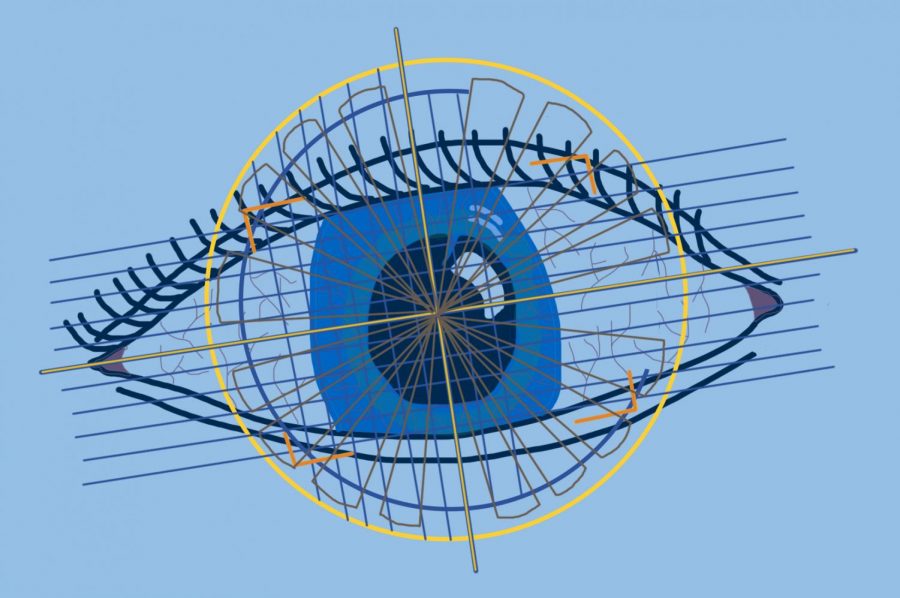Digital IDs, the Miracle Cure for a Lockdown Exit Strategy?
April 29, 2020
With nearly 3 billion people from over 100 countries in lockdown, humanity is moving to an online world. As the infamous work-from-home joke goes, “Now we will see which meetings could really have been done over email.” The key to ensuring digitalization is a digital ID, to prove that you are, in fact, you. It may also be the key to provide for a secure exit strategy out of the lockdowns. Through the powerhouse marriage of biometrics and blockchain, the new era of global digital identity is dawning.
Digital identity solutions are our immediate future. At this very moment, they are integrated into every thinkable process around the world. Digital IDs are the backbone to assuage our thirst for digitalization in our economy, and the answer to closing the identity gap of the over 1 billion undocumented in alignment with the United Nations’ (U.N.) Sustainable Development Goal 16.9 “legal identity for all” by 2030. The only question is, will they also cement our way out of the novel coronavirus lockdown?
Sitting in an overcrowded doctor’s waiting room is an unpleasant experience, even more so since the outbreak of the coronavirus. Telemedicine for online consultation provides a remedy. The Swedish startup Kry, which offers video counseling and therapy services, experienced a skyrocketing increase in demand by 240% since February. Due to the private nature of the data, digital identity verification comes into play in order to ensure the patient’s safety. Thus, it comes as no surprise that the digital identity verification startup Onfido saw an increase of 370% since January. Through the teamwork of a selfie and an artificial intelligence algorithm, the identity of a client can remotely be verified in as few as 15 seconds.
ID.me, an American online identity network, together with gas stations BP and Amoco, initiated a support program for health care workers and first responders in the coronavirus pandemic by deducting 50 cents off per gallon on their gas purchases. The global digital identity platform Yoti will offer its services for free for three months starting in April to organizations fighting the novel coronavirus to ensure contactless staff verification. Likewise, the United Arab Emirates (UAE) implemented a UAE Pass app, a digital identity program that allows not only for identity verification but also for e-signing documents to support the government’s social distancing measures.
With the world arguing over potential exit strategies, slowly but surely digital identity solutions find their way into the debate in regard to immunity verifications. If and when the world develops the holy grail of this pandemic — a vaccine — there must be a digital account for its injection into the patient in order to nip fraud, corruption or accidental duplication in the bud. The same holds true for a potential antibody immunity. Those who are immune could be issued a digital certificate that exempts them from the government-imposed restrictions. Current types of ID verification entail the risk of inaccessibility, data insecurity and identity fraud. Over 15 million people fell victim to identity theft in 2017 alone.
In 2019, the government of Bangladesh and the vaccine alliance Gavi launched a digital identity program to keep track of who received a vaccination. The backbone of this partnership is the strategic global initiative ID2020. The alliance consists of private and public partners such as the Rockefeller Foundation; the city of Austin, Texas; Accenture; Gavi; hyperledger; the University of California Berkeley CITRIS Policy Lab; and Microsoft. Along with the U.N. Refugee Agency (UNHCR), the alliance advocates for an ethical and privacy-protecting approach toward worldwide digital ID implementations in their landmark manifesto from 2018.
Additionally, a digital ID could restore a normal travel protocol for all of us. The World Economic Forum (WEF) has been promoting digital borders since 2017. In March 2020, the WEF published its Known Traveler Digital Identity whitepaper. Using blockchain technology, biometrics, mobile devices and cryptography, it aims to increase security, as well as the passenger experience. A pilot between the Netherlands and Canadian border is already in place. Since March 20, South Korean citizens are allowed to board domestic flights using digital IDs, which are likewise based on blockchain technology.
So how does a digital ID work? After the biometrics scans — fingerprint, voice and/or iris — are conducted, a unique identifier using several security protocols is generated. Next, the identifier is recorded on the blockchain. Secured by blockchain’s cryptographic principles, the biometric data is now immutable. There it functions as an index with respective links to the data. As a result of the decentralization superpower of blockchain, we will get our long-lost right to self-sovereignty over our own data back, since we get to decide what we share with whom.
The UNHCR promotes contactless iris-scan biometrics as they reduce the risk of conducting the novel coronavirus. Some pilot projects have already launched in Bangladesh, Ethiopia, Zambia and Malawi. Voice biometrics provide the same contactless solution.
In October of last year, Nuance Communications and Microsoft announced their partnership to transform the doctor-patient experience with, among other things, the use of voice biometrics to unlock private health records. Nuance’s voice biometrics security technology saved $1 billion in fraud costs in 2018 alone. As an immediate consequence, passwords and pins will be left behind in our past.
While that all sounds too good to be true, and maybe even like a modern-day tech fairy tale, there are, in fact, some real-life limitations. If our endangered data is the beautiful princess and our blockchain-based digital identity is the prince, then cross-border governance and human cooperation issues are the evil witches. Global digital governance needs to be established in order to accelerate our digital life and truly initiate a paradigm shift. The WEF released a blueprint and a strategic imperative for a worldwide inauguration for digital IDs.
If digital identities fail to work the right way, the consequences may include users’ loss of trust and control over their data, increased data security and compliance costs, and open doors for fraud. Hence, it’s crucial that a so-called good digital ID is built. This entails a unique design which is highly verified and authenticated, only established with the user’s consent, protecting their privacy and ensuring control over their personal data. This way, privacy protection and the acceptance of the government, as well as the private sector, are harmonized. Unfortunately, digital IDs are not immune to misuse. Deepfakes — AI-powered, realistically appearing fake videos or voice recordings — pose a real threat, as they could be weaponized for the exploitation of digital authentication.
Debates surrounding the potential use of digital immunization certificates will get louder with every day spent in social distancing restrictions. The G-20 states just announced an initiative for health tools needed to combat the pandemic. With global teamwork, the hope for a united approach out of the lockdowns is dawning on the horizon. At the heart of this hope is a digital ID.














